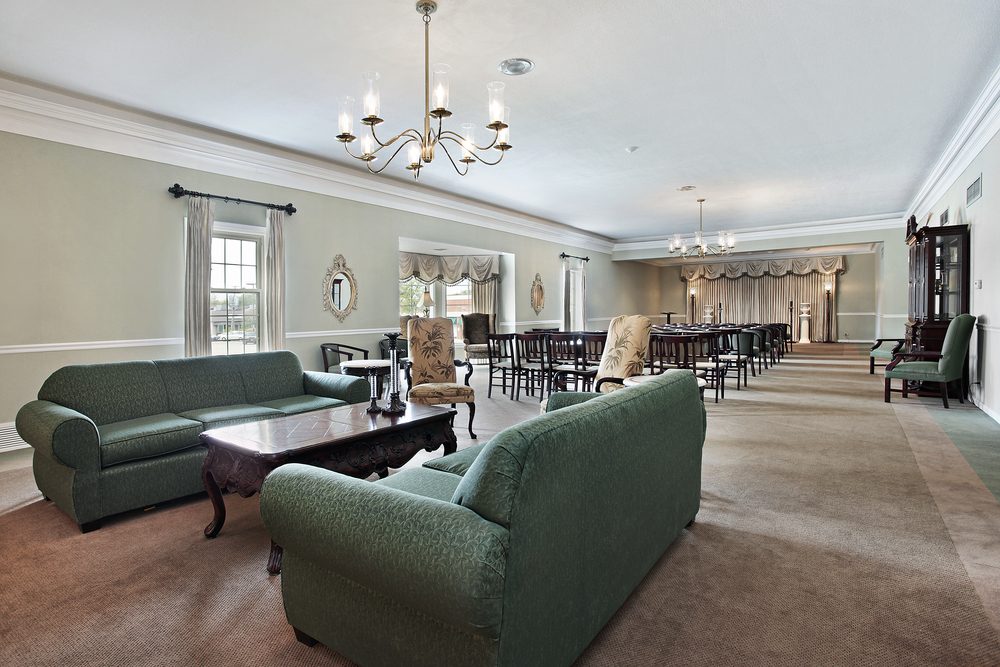For many of us, the death of a loved one is one of the most difficult life events we face. We don’t want to think about it, but there is value in thinking ahead and being prepared for an event that we will all face someday. Whether you want to complete advance planning arrangements or are in the midst of planning the funeral of a loved one right now, it’s important to choose the funeral home that works best for you.
Unfortunately, funeral homes are not created equal. It’s important to choose one that will meet your individual needs and desires. Consider these 10 characteristics of a good funeral home as you select a partner for your funeral planning needs.
1. Possesses a Good Reputation
We all know of a place (whether it be a restaurant, movie theater, retail store, or funeral home) that has a bad reputation. What do we instinctively do when we know a place has a bad reputation? We avoid it. We read the online reviews, we listen to other people’s stories, and we value our own experience.
Particularly when selecting a funeral home, find an establishment that possesses a good reputation so you can be confident in the care and service you will receive. Ask your friends for recommendations or read online reviews of the funeral homes in your area.

2. Employs Caring and Compassionate Staff
As with any business you frequent, you should expect to be treated with kindness. However, this attitude should be especially true of funeral home staff since families are facing a difficult time in their lives. Excellent customer service and authentic sincerity constitute a large part of a funeral home’s reputation, which is one reason these two qualities are very important to funeral directors and their staff. The staff will treat you well and with consummate professionalism. If they don’t, there’s a problem.
One way to determine if a funeral home’s staff is caring is to see how involved they are in the community. Or, make a short list of funeral homes you are considering and give them a call. You can learn a lot about the quality of a person from a simple phone call. Also, some funeral homes are now incorporating grief therapy dogs as part of their staff, in an effort to provide comfort to families and guests.

3. Communicates a Commitment to the Families It Serves
No matter where you go, you should have confidence in the funeral home’s commitment to you. If a funeral home has a good reputation and employs kind and caring staff, then they will likely show great commitment to the families they serve. However, it is still good practice to read a funeral home’s mission statement and history. These two pieces of information can give you a better understanding of a funeral home’s values and commitments. You should be a top priority.
4. Is Willing to Create a Unique and Meaningful Experience for You or Your Loved One
Renowned grief counselor, author, and educator, Dr. Alan Wolfelt, says, “What is essential [when planning a funeral] is the life that was lived and the impact that life had on family and friends. To honor that unique life, the funeral must also be unique. Over and over families tell me that the best funerals are those that are personalized.”
As you consider a funeral home, ask yourself, “Will this funeral home help me create a service unique to my needs and values?” Personalized funerals and memorials are on the rise in the United States. Families and friends are looking for unique and personal ways to honor lost loved ones, and a good funeral home will work with you to create a meaningful and healing experience. Is the funeral director listening to you carefully and willing to educate you in areas where you lack knowledge? Is the funeral director offering helpful options and explaining the benefits and pitfalls of each option?

5. Offers a Good Location, Facility, and Services
First, whenever possible, choose a convenient location. You will be in frequent contact with the funeral home as you plan a funeral, so a convenient location will be helpful for your preparations.
Second, consider the funeral home facility critically. Is it clean and well-kept? Do they have a chapel, space for a visitation, viewing, or reception (if your plans require such spaces)? Is the décor to your liking? Is the space flexible – can you adjust it to meet your specific needs? Consider the elements you want to be a part of the funeral service and choose a funeral home that meets those desires.
Finally, confirm that the funeral home offers the services you need. Do they offer transportation services, embalming, cremation, etc.? Some funeral homes now offer child-friendly spaces – is that something that’s important to you? No matter what your wishes, only commit to a funeral home that can accomplish them.
6. Accommodates Religious or Cultural Needs
In the United States, the population has always been a mix of religions and culture. As it becomes even more diverse, it’s important for funeral homes to meet the changing needs. With this in mind, no matter what your background, you should look for a funeral home that will help you honor your loved one in the way that you deem appropriate for your cultural background and religious beliefs. For some people, their origins and beliefs make up the fabric of who they are. It’s important that these core values are evident in the funeral or memorial service. No two people are the same, and because of our individual uniqueness, no two funerals should be the same either.
7. Values Transparency about Costs and Descriptions
Almost everyone values a transparent fee structure. With that in mind, partner with a funeral home that values openness and transparency with you. In case you aren’t aware, funeral homes are required to follow the Federal Trade Commission’s Funeral Rule. This law stipulates that, when asked, a funeral home:
- Must provide any consumer with a general price list
- Should inform the consumer that they have the right to choose the funeral goods and services they want (with some exceptions)
- Must disclose, on the general price list, whether any particular item is required by state or local law
- May not refuse or charge a fee to handle a casket bought elsewhere
- Must offer alternative containers (if cremation is chosen, alternative containers must be offered)
Ask for an itemized list that includes all expenses with nothing left out. This will help you determine what’s best for your budget – no surprises! And remember, you get what you pay for. Cheapest isn’t always best in every case. If you are looking to cut down on costs, consider looking into a preplanned and prepaid funeral. By making plans without the stress of time constraints, a family can save hundreds of dollars.
In short, look for a funeral home that is considerate of your needs and your budget. Is the funeral home transparent about funeral service costs? Is the package pricing clear? Have they offered you a general price list and helped you plan a service within your budget?

8. Offers Grief Resources
An important question to ask yourself is, “Does this funeral home provide services beyond the funeral itself?” A good funeral home will be there for you even after the funeral is over. Look for an establishment that offers grief counseling services, post funeral newsletters and education, grief support groups or materials, in-home “check in” visits and phone calls, or hosts holiday commemoration services, to name a few options. Your grief journey is important, and the right funeral home can help you on the road toward healing.
9. Utilizes Up-to-Date Technology
The funeral industry is often accused of being behind the times, but this is not entirely true. Yes, some funeral homes may be slow to change, but there are new, exciting technological advances available. More and more funeral homes are cultivating a social media presence, creating and updating their websites, helping families create memorial videos, or offering webcasting services. Some are even providing online funeral planning services. If these services are important to you, look for a funeral home that uses up-to-date technology to enhance its services.

10. Engages the Community with Education Programs
Finally, a good funeral home and its staff engages the community before, during, and after the funeral. Does the funeral home host education programs about estate planning and the importance of getting your affairs together? Do they offer Lunch & Learns to share the importance of funeral preplanning or offer tours of the funeral home facilities? Do they offer hospice continuing education or engage in community events? The funeral home should be an advocate of information. Death inevitably comes to us all, and we cannot change that. But, education and preparation can be our ally, but that only happens if a funeral home engages with its community.




